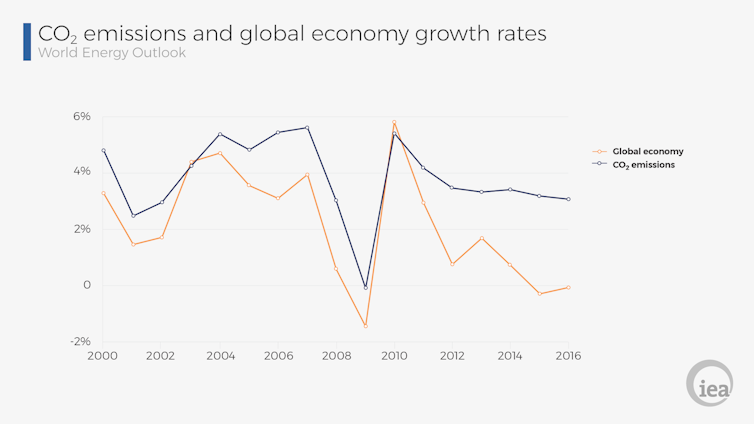At the COP24 conference in Poland, countries are aiming to finalise the implementation plan for the 2015 Paris Agreement. The task has extra gravity in the wake of the recent IPCC report declaring that we have just 12 years to take the action needed to limit global warming to that infamous 1.5ᵒC target. Although the conference itself is open to selected state representatives only, many see the week as an opportunity to influence and define the climate action agenda for the coming year, with protests planned outside the conference halls. A crucial role of environmental activists is to shift the public discourse around climate change and to put pressure on state representatives to act boldly. COP24 offers a rare platform on which to drive a step change in the position of governments on climate change. However, many environmental movements in Europe are not offering the critical analysis and radical narratives needed to achieve a halt to climate change. Read more: Extinction Rebellion: I'm an academic embracing direct action to stop climate change
 Economic growth and carbon emissions are closely linked. International Energy Agency
Practically, what this means is that as long as economic growth continues to expand rapidly and indefinitely, so too will the quantity of CO₂ in the atmosphere and the associated environmental and social impacts.
To address climate change, therefore, we must address the root cause of this planetary ailment: the ideology of growth first, growth always. By moving away from growth-oriented societies in Europe and other advanced economies, towards ones that prioritise environmental and social health, we stand the slimmest chance of solving our climate crisis, while still allowing the poorest economies globally to meet their economic needs.
Economic growth and carbon emissions are closely linked. International Energy Agency
Practically, what this means is that as long as economic growth continues to expand rapidly and indefinitely, so too will the quantity of CO₂ in the atmosphere and the associated environmental and social impacts.
To address climate change, therefore, we must address the root cause of this planetary ailment: the ideology of growth first, growth always. By moving away from growth-oriented societies in Europe and other advanced economies, towards ones that prioritise environmental and social health, we stand the slimmest chance of solving our climate crisis, while still allowing the poorest economies globally to meet their economic needs.

Degrowth bedeutet eine Abkehr von einem wachstums- und profitorientierten Wirtschaftssystem. Mittels einer sozial-ökologischen Transformation soll ein gutes Leben für alle möglich werden. Das bedeutet: die imperiale Lebensweise des globalen Nordens überwinden, Alternativen aufbauen und positive Erzählungen unserer möglichen Zukunft schaffen. Dazu gehört auch, Widerstand gegen unnütze Großprojek...
Der Wohlstand Mitteleuropas, unser hohes Mobilitäts- und Konsumniveau, gründet auf drei industriellen Revolutionen, deren technischer Fortschritt die Arbeitsproduktivität ständig erhöht hat. Die Folgen sind paradox: Einerseits können mit dem gleichen Arbeitsaufwand immer mehr Güter produziert werden, und die breite Masse der Bürger kann sich dank Lohnerhöhungen immer mehr leisten. Andererseits ...

Während der internationalen Degrowth-Sommerschule an der »Universitat Autònoma de Barcelona« unterhielt sich Felicitas Sommer mit dem Commons-Forscher Aggelos Varvarousis, der Soziologin Lúcia de Oliveira Fernandes und dem Aktivisten und Wissenschaftler der ökologischen Ökonomien Claudio Cattaneo. Felicitas Sommer: In vielen südeuropäischen Ländern brechen die öffentlichen Versorgungssysteme zusammen. Der Zugang zu medizinischer Versorgung und öffentlichen Bildungseinrichtungen, der [...]